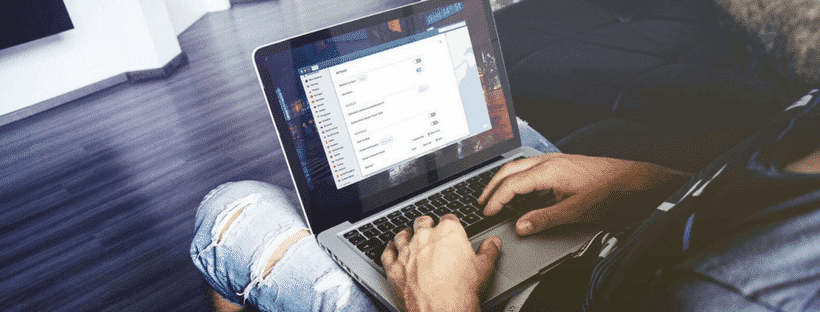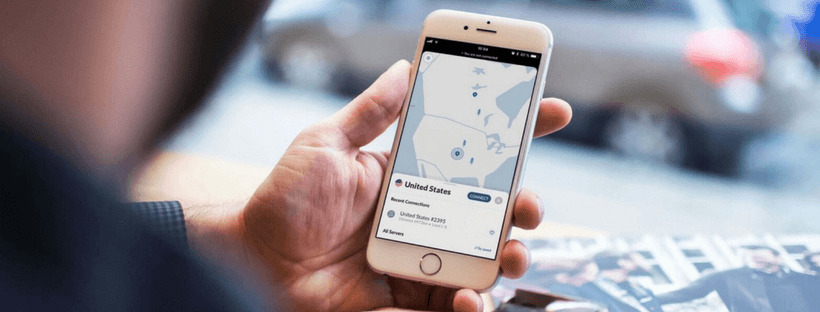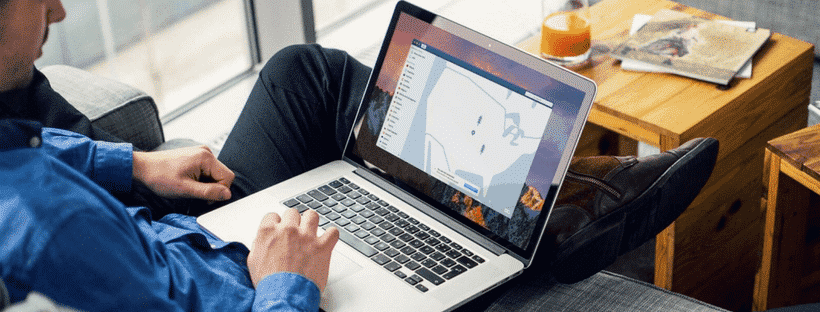A secure VPN connection is something every traveler should be using, whether they’re gay or straight. Anyone who uses the internet is at risk. Even with increased security measures, firewalls, and spyware detectors, eyes are forever on your internet activity. Internet Service Providers (ISPs) log your data, and certain countries around the world either block your activity or share it with other intelligence agencies.
Protecting your data isn’t like shielding your computer from a virus. In order to gain anonymity on the World Wide Web, you need the help of a Virtual Private Network (VPN).
If you’re new to VPNs or are wondering whether or not it’s time to start using one, keep reading to find out why you should already have one.
Get NordVPN Now For Just $3.99/month

What Is A VPN and What Does A VPN Do?
Virtual Private Networks (VPNs) are a humble tool that transform the way you use the World Wide Web. According to sources like, ZDNet and Mashable, VPNs are a service that allow you safe and secure access to the internet anywhere in the world by doing the following things:
- VPNs protect you from ISPs, hackers, and other organizations who want your data by concealing and encrypting the signals coming to and leaving your device;
- VPNs manipulate the IP address fixed to your device, so it looks like you’re accessing the internet from another location.
Simplified: Your internet data and information is sent through the VPN server and mixed up so that it can’t be read by anyone who might be trying to store your information. Using a VPN service adds an additional layer of security over an SSL connection. For more information about free and paid VPNs, keep reading.
Why should I use a VPN?
There are a number of reasons why you should use a VPN, but the predominant theme is “security.” Whether you are at home, traveling the world, connected to public free WiFi, uploading and downloading P2P or torrent files, or trying to watch Hulu and Netflix in another region, you are risking the chance of having your sensitive data breached. To protect yourself from the prying eyes of 5, 9, and 14 Eyes countries, as well as hackers and ever watchful ISPs, you need something that’s going to cover your tracks successfully.
A VPN is a virtual shield that deflects eavesdropping and global mass surveillance. For example, you might be in China and are unable to connect to your social media account. By using a VPN, you can gain access to a site that would be otherwise restricted.
Furthermore, according to Lifewire, regardless of where you are in the world, a hacker from near or far can take advantage of those free hotel WiFi connections with widely available tools like Evil Twin mock hot spot and Firefox Tamper Data. Without the additional layer of protection you get from a VPN, your connection is prey to ISPs, mass global surveillance, and worst of all, malicious hackers who want your identity and credit cards.
Simplified: You have the ability to access blocked apps (ahem, Grindr), and various streaming sites like Netflix or Hulu in countries where they might be blocked, all while keeping your information safe.
How do I set up a VPN?
Once you have figured out the best VPN for you and your personal needs (I recommend NordVPN), you can start the connection process.
With NordVPN, you don’t have to worry about how the service is handling data transmission—especially if you’re not into the technicalities. It is as simple as downloading the software, setting up your account and subscription, and activating it on each device you wish to use a secure VPN connection. NordVPN is the best VPN for non tech savvy people like myself, I find their setup to be as simple as logging into Facebook!
To set up NordVPN, you can do one of two things:
- Download the software from the supplier’s website
- Install a VPN on your router
VPN software installs like any other downloadable program. Simply follow the instructions on NordVPN’s website, and you will have a connection in no time. Expect to have to register through the NordVPN signup by using your name, email, and, if you buy a subscription, provision of your debit or credit card number.
Installing a VPN on a router is a bit more complicated. You first need a device that is compatible with a VPN connection. Any router that uses DD-WRT or Tomato-boosted FlashRouters work.
What follows after verifying your router can use a VPN depends on the service. There should be instructions on the provider’s website how to access the VPN connection, but it rarely involves more than logging into the router and filling in some information.
What is the difference between Free VPNs and Premium VPNs?
The simple explanation is a free VPN usually has limitations that paid VPNs do not, such as bandwidth restrictions or information logging. But the dissimilarities between free VPN services and the ones you pay for goes much, much deeper. Free VPNs aren’t as trustworthy as those with subscription plans, nor are they as secure as a service like NordVPN.
There was a study performed by a team from CSIRO’s Data61, which is comprised of specialists from the University of New South Wales in Australia, University of California Berkeley, and the International Computer Science Institute, that looked into over 280 free Android apps that utilize Android VPN permissions. According to their findings, 38% of those free apps contained malware, 84% leaked user information, and 75% had tracking libraries.
For a safer VPN, be sure to choose options like NordVPN, which has a number of plans, an upfront logging policy, and multiple regions to connect to. NordVPN also has specialized connections for streaming video, which is something you don’t see on free VPNs.
What is the best VPN for travel?
Ultimately, travel is what influenced my VPN usage, because hackers are everywhere, and not every country is as open with their internet as others. LGBT travelers, for example, are at risk of having their data logged, especially if they are using apps like Grindr or Scruff in countries where homosexuality isn’t widely accepted. If you go to China or Russia, the internet is heavily censored and restricted, meaning you might not even be able to get into your email account or check your travel funds without risking hindrances or worse.
This is why everyone should be using a VPN travel router. Not only do you get relatively fast connections to the internet anywhere in the world, a VPN connection for travel provides the reassurance of knowing you are protected.
These useful gadgets circumvent all the security risks you run into while traveling abroad by encrypting the public WiFi connections around you and transmitting them to your devices. Since multiple connections are allowed, whether you are traveling alone or in a group of people, all devices are covered!
NordVPN is a great software that works perfectly for travel because you don’t have to worry about lugging around a VPN travel router with you. Keep in mind that not all VPNs are cut out for use anywhere in the world.
Ideally, the best travel VPN is one that hides your IP address, transcends geo-restrictions, has Netflix access, DNS leak protection, kill-switch set-up (for unexpected internet dropouts), multiple connections, double encryption, a multitude of servers to choose from, and fast speeds.
Only a handful of VPN providers have all these features, and the most secure and functional happens to be NordVPN. This VPN even uses the most secure tunneling protocol, OpenVPN and gives you access to over 400 geo-restricted streaming apps, like Amazon Prime, Pandora, Netflix, Hulu, and more. NordVPN also has a strict no-logging policy, due to their location in Panama, an independent country that doesn’t “require data storage or reporting.”
Whether you decided to use NordVPN or another provider, be sure to keep your eyes open for services that cover everything listed here. Otherwise, you won’t be as protected abroad as you think you are.
Devices compatible with NordVPN:
- iPhones, iPads, and other iOS devices
- Gaming Consoles
- Routers
- Windows Laptops
- Android TV
- Android Devices
- Tablets
- Amazon Fire Sticks
- Macbooks
- Desktop Computers
Final Thoughts
Too many travelers still aren’t using a VPN—and this is putting you and your sensitive data at risk in more ways than one. New threats to your privacy are appearing every single day. With talks in the US about the loss of net neutrality, ISPs who sell user data to 3rd parties, and hackers having their way with your data, there is no reason not to use a VPN. Since Virtual Private Networks are easy to set up and use, even novice computer users can get one, so be sure to protect yourself from cyber threats at home and abroad. Get yourself a VPN.
NordVPN has monthly plans starting at just $3.99/month. They have a 30 day money back guarantee, so you can set it up now and not worry about it later.









2 thoughts on “Why You Need A Secure VPN For Travel”
Definitely buddy. Gotta have that VPN for circling the globe. Securing public WiFi connections is key but logging in to sensitive sites is another key factor. Plus most services are like $6 a month. No brainer for travelers.
It is definitely a must whether or not you’re traveling! Worth every penny 🙂